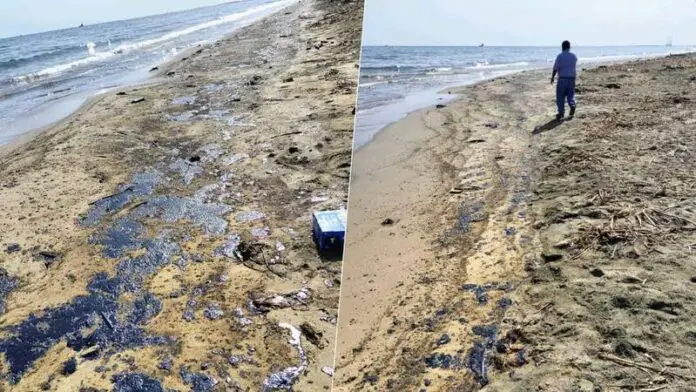Paradise Beach has joined the list of affected sites due to the presence of chapopote (a type of tar or oil residue) and suspected oil residues, and Pemex is already working to clean them up.
Just a few days after the change in color of the Seco River in Paradise municipality, which turned pink, now Sol Beach in this district has been closed to the public due to the appearance of hydrocarbon residues or chapopote.
The local government announced on social media that, in coordination with Petróleos Mexicanos (Pemex), it was agreed to start cleaning the affected areas using worker teams and specialized equipment.
The impact is present along the entire beach strip from Las Flores Second Section to Tupilco Bar.
The municipal authority reported that the Civil Protection Coordination, as well as the Environmental Protection and Sustainable Development Directorate, determined not to allow bathers to enter.
So far, it has not been disclosed whether this is a response to an oil spill in Pemex facilities or what the origin of these residues that “stained” the sand during the first hours of the day is.
Doubts persist about pink water in river
Regarding the change in color of the Seco River, dedicated to oyster production, on Sunday the General Director of Pemex, Octavio Romero Oropeza, denied any link between the refinery Olmeca and the incident: “oil is not pink,” he said at his exit from the VI government report by Carlos Manuel Merino Campos.
Mayor Ana Castellanos assured that the ban on consuming raw oysters and tapesco, which was decreed since August 10, remains in place.
She highlighted that the restrictions for ingesting the mollusk without prior cooking are due to the detection of fecal coliforms in the product.
Additionally, she noted that the National Water Commission (Conagua) and the State Health Secretariat have not shared the results of water sampling after the river turned pink.
However, the head of Conagua’s Local Office, Luis Antonio Cabrera, attributed the phenomenon to salinity and the presence of microorganisms, and dismissed the possibility of hydrocarbons or oils in this body of water, despite fishermen claiming otherwise.
Source: El Financiero






